![]()
![]()
![]()
Use LEFT and RIGHT arrow keys to navigate between flashcards;
Use UP and DOWN arrow keys to flip the card;
H to show hint;
A reads text to speech;
20 Cards in this Set
- Front
- Back
- 3rd side (hint)
|
TWO PARTY SYSTEM |
A system where two major political parties dominate politics within a government |
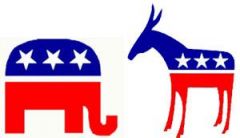
|
|
|
FEDERALISTS AND ANTI-FEDERALISTS |
F: A member of a major political party in the early years of the U.S. that wanted a strong central government
A-F: A person who opposed the adoption of the Constitution |
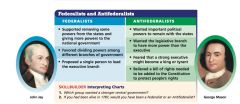
|
|
|
DEMOCRATIC - REPUBLICANS |
Major political party of the 19th century favoring a strict interpretation of the Constitution to restrict the powers of the federal government and emphasize states rights |
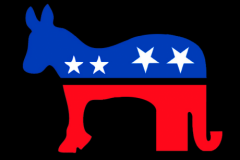
|
|
|
JACKSONIAN DEMOCRACY |
A movement for more democracy in American government led by president Andrew Jackson. The movement championed greater rights and opposed to any signs of aristocracy |
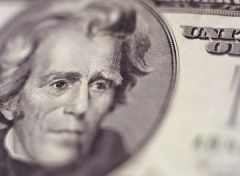
|
|
|
WHIGS |
A political party that opposed the Andrew Jackson's movement of democracy. They stood for protective tariffs, national banking, and federal aid for internal improvements |
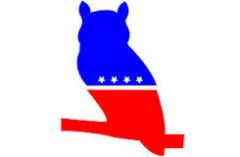
|
|
|
REPUBLICAN PARTY/ DEMOCRATIC PARTY |
R.P: The more conservative of the two major political parties in the U.S.. It began in 1854 and was composed of northerners from both major parties of the time, Whigs and Democrats. The first republicans were united by there opposition to slavery. The first winning presidential candidate was Abraham Lincoln
D.P: The older and more liberal of the two major political parties in the U.S.. A political party that arose from the Democratic - Republican party in 1820 where Andrew Jackson was the first elected president. The party generally opposed the national bank, high protective tariffs, interference with slaves, and federal aid for internal improvements. The greatest strengths were the farmers, laborers, and people of the frontier. |
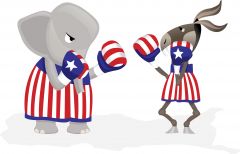
|
|
|
ROOSEVELT COALITION |
Roosevelt set up his new deal in 1933 and forged a coalition of labor unions, liberals, religious, ethnic and racial minorities (Catholics, Jews, and Blacks), Southern whites, poor people, and those on relief. |
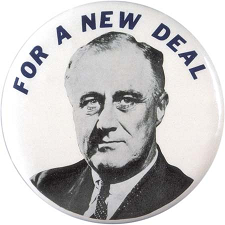
|
|
|
REAGAN REVOLUTION |
Beginning in the 1980s sought to change Americans' attitudes towards their country, their government, and the world as the U.S. emerged from the 1970s. Reagan entered to promise to restore American faith, to shrink the "Big government", and to defend America more aggressively especially to the Soviet Union |
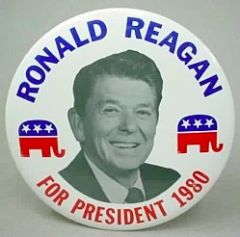
|
|
|
GRIDLOCK |
Refers to a situation when there is difficulty of passing laws in legislature because the votes for and against a proposed law are evenly divided, or in which two legislative houses, or the executive branch and legislature are controlled by different political parties, or otherwise cannot agree |
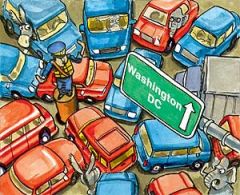
|
|
|
THIRD PARTIES |
A political party organized as an alternative to the major parties in a two-party system |
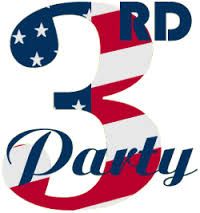
|
|
|
PRIMARY ELECTIONS |
A preliminary in which voters of each party nominate candidates for office, party officers, etc. |
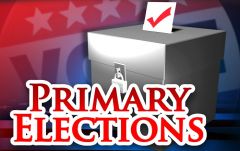
|
|
|
CLOSED PRIMARIES/ OPEN PRIMARIES |
C.P: A direct primary in which only persons meeting tests of party membership may vote
O.P: A direct primary election in which voters need not meet a test of party membership |
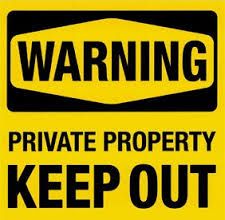
|
|
|
MID- TERM ELECTION |
General elections held two years after the four year elections for the President (i.e near the midpoint of the four year presidential term) |

|
|
|
EMILY'S LIST |
Political action committee aimed to help elect pro-choice Democratic female candidates to office. It was founded by Ellen Malcolm in 1985 |
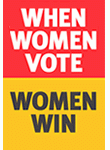
|
|
|
INTEREST GROUPS |
A group of people drawn or acting together in support of a common interest or to voice a common concern |
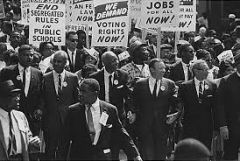
|
|
|
REVOLVING DOOR |
A movement of personnel between roles as legislators and regulators and the industries affected by the legislation and regulation |
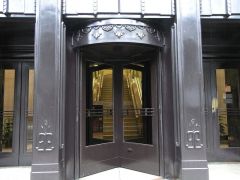
|
|
|
LOBBYING |
Any attempt by individuals or private interest groups to influence the decisions of government; in its original meeting it referred to efforts to influence the votes of legislators, generally in the lobby outside of the legislative chamber |
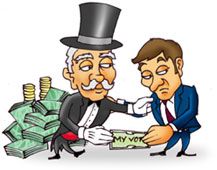
|
|
|
EQUAL TIME RULE |
An equal amount of time on air, which radio and television licenses are required to offer to opposing candidates for public office and to those voicing diverging views on public referendums |
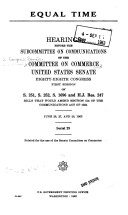
|
|
|
SOUND BITES |
A brief, striking remark or statement excerpted from an audiotape or videotape for insertion in a broadcast news story |
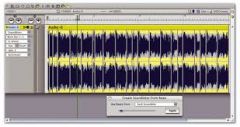
|
|
|
SPIN DOCTOR |
A press agent skilled at spin control |
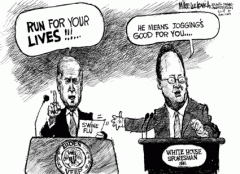
|

